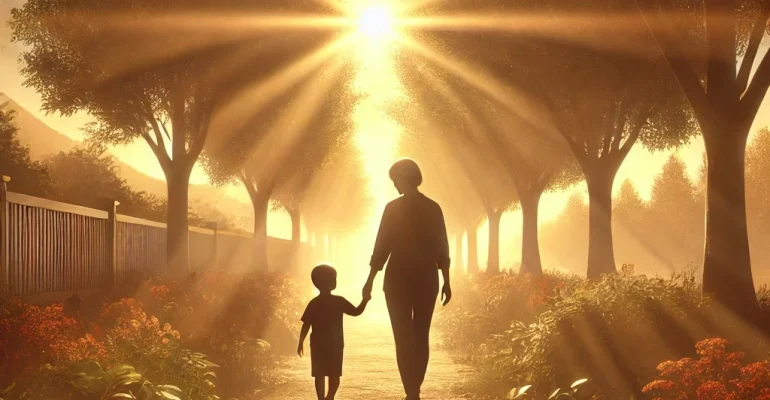When Kindness is a Currency
The first time I can remember I truly experienced the goodness of a stranger because of someone else’s reputation was back in junior secondary school. I can’t remember how I ended up at a bukka near the mini campus that day, but I vividly recall the moment. There I was, eating my meal in my school uniform, when a guy seated on another bench kept glancing at me. At first, I dismissed it, thinking it was because of my attire. Perhaps it wasn’t common to see a student eating there in uniform.
But then, he called out, “Are you related to Engr. Adeoti?”
Caught off guard, I nodded and said yes. He didn’t say another word. He simply stood up and left after he was done with his meal. Moments later, the woman running the bukka came over and told me that the man had paid for my meal. Apparently, he was a student in my father’s department. I didn’t know his name, and there was no way to trace him, so I simply told my dad about the incident later. My dad shrugged it off, as if it was nothing extraordinary. But to me, it was an unforgettable moment; kindness extended to me, not for anything I had done, but because of who my father was.
That wasn’t the last time I saw how people can receive leg-ups simply because of their lineage or connections. I’ve heard countless stories of individuals getting job offers, opportunities, or even favors, all because of what their parents or relatives had done for someone else. A handshake that closed a deal, a chance at mentorship, or even a free meal. These seemingly small acts ripple through time and benefit not just the giver, but their descendants.
This might not seem fair at first glance. Life, after all, is rarely always a meritocracy. But the truth is, humans are sentimental beings. We are wired to gravitate toward people who remind us of others who’ve helped us along the way. It’s an unspoken currency of goodwill that passes from one generation to the next.
Take, for example, the famous story of how Warren Buffett’s father, a small-town stockbroker, gained respect in their local community. Decades later, that respect opened doors for Buffett himself, long before he became the “Oracle of Omaha.” People wanted to help him not only because of his brilliance but also because of the goodwill his father had quietly built over the years. How do you think those acts could have aided the power of compounding which I talked about yesterday?
You have probably heard of such stories too. The customer service person going the length for you because he knows your brother. The marketwoman giving you a discount because your mum had helped her with a lift before.
These examples remind us that the impact of our actions often outlives us. Every kind deed, every opportunity we extend, plants a seed, not just for the recipient but for those who come after them. Imagine, for instance, helping a young person secure a scholarship. That act of kindness might one day benefit their child, who may cross paths with yours, creating a chain of goodwill you never intended but would be proud of.
Perhaps this realization can inspire us to be more intentional in helping others. We can’t predict how our actions will ripple across time, but knowing that they might make life easier for someone else’s child, or even our own descendants, should encourage us to act with generosity and kindness.
In the end, life may not always be fair, but it is connected. Every act of goodwill is an investment in a future we may never see but can help shape.
Of course, talent is universal, opportunity is not, and you’d be amazed the things that enhance those opportunities.


